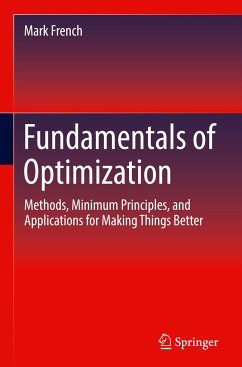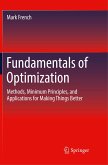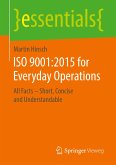This textbook is for readers new or returning to the practice of optimization whose interest in the subject may relate to a wide range of products and processes. Rooted in the idea of "minimum principles," the book introduces the reader to the analytical tools needed to apply optimization practices to an array of single- and multi-variable problems. While comprehensive and rigorous, the treatment requires no more than a basic understanding of technical math and how to display mathematical results visually. It presents a group of simple, robust methods and illustrates their use in clearly-defined examples. Distinct from the majority of optimization books on the market intended for a mathematically sophisticated audience who might want to develop their own new methods of optimization or do research in the field, this volume fills the void in instructional material for those who need to understand the basic ideas.
The text emerged from a set of applications-driven lecture notes used in optimization courses the author has taught for over 25 years. The book is class-tested and refined based on student feedback, devoid of unnecessary abstraction, and ideal for students and practitioners from across the spectrum of engineering disciplines. It provides context through practical examples and sections describing commercial application of optimization ideas, such as how containerized freight and changing sea routes have been used to continually reduce the cost of moving freight across oceans. It also features 2D and 3D plots and an appendix illustrating the most widely used MATLAB optimization functions.
The text emerged from a set of applications-driven lecture notes used in optimization courses the author has taught for over 25 years. The book is class-tested and refined based on student feedback, devoid of unnecessary abstraction, and ideal for students and practitioners from across the spectrum of engineering disciplines. It provides context through practical examples and sections describing commercial application of optimization ideas, such as how containerized freight and changing sea routes have been used to continually reduce the cost of moving freight across oceans. It also features 2D and 3D plots and an appendix illustrating the most widely used MATLAB optimization functions.








